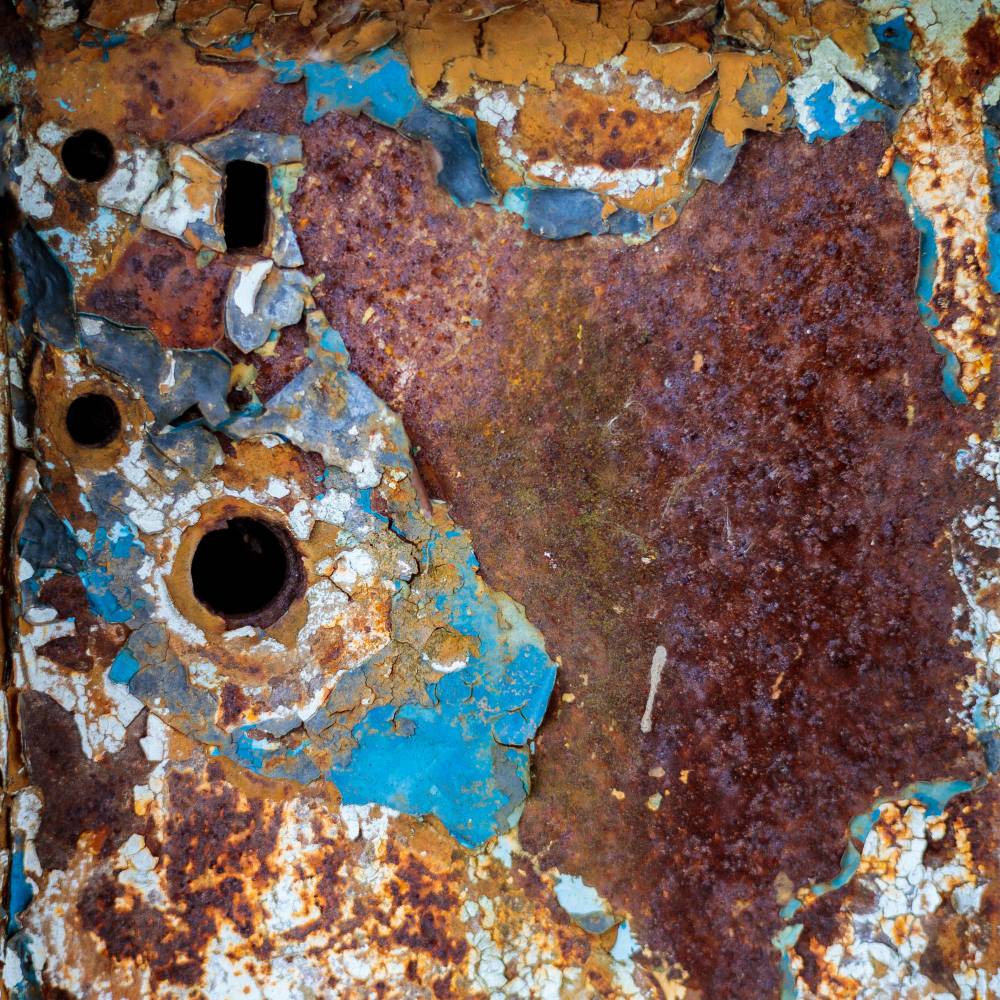

JUL 13, 2024
Corrosion and rusting are terms often used interchangeably, but they are different. Both processes involve the deterioration of materials, especially metals, but they occur in various ways and under different conditions. RCM Recycling dives into what makes them distinct and how you can tell them apart to make the most of your scrap metal recycling efforts.
Corrosion refers to the gradual degradation of metal materials due to chemical reactions with their surroundings, usually water, oxygen, or acids; iron and steel tend to corrode over time, while others react more readily than these two metals. Corrosion comes in various forms, including tarnishing, pitting, or cracking, and it occurs when exposed to elements like oxygen. Copper reacts with oxygen by developing its characteristic green patina layer - another sign of corrosion!
Corrosion can be an alarming threat to industry and homeowners alike, weakening structures and leading to safety hazards—many turn to scrap metal recycling services to manage and dispose of their corroded metals effectively.
Rusting is a specific type of corrosion that only affects iron and its alloys, such as steel. Iron reacts with water and oxygen and forms iron oxide, commonly known as rust. This reddish-brown substance is familiar to anyone who has seen an old car or a neglected metal fence. Rusting requires three things: iron, water, and oxygen. With these, rusting can occur.
Rust is flaky and weakens the metal, making it look unsightly and reducing its strength. This is why it’s essential to properly manage and recycle rusty metal, often with the help of a scrap metal buyer specializing in recycling.
Copper, aluminum, and zinc.
Rusting specifically affects iron and its alloys.
Corrosion can cause different appearances, such as a green patina on copper or white powder on aluminum.
Rusting results in a reddish-brown flaky layer.
Corrosion can happen due to many environmental factors, including exposure to acids, bases, and salts.
Rusting needs iron, water, and oxygen.
Corrosion can result in surface tarnishing, deep pitting, or even cracks.
Rusting generally leads to surface damage and flaking, which can spread if not treated.
Preventing these processes involves protecting the metal from the environment. Here are some standard methods:
Using these methods, we can extend the life of metal objects and structures, reducing the need to replace them constantly. Working with a scrap metal company is essential to ensure proper recycling when metals end their useful life.
Recycling scrap metal is essential to protecting natural resources while mitigating pollution and conserving energy consumption. If you have old, rusted, or corroded items you no longer wish to keep around the home, take them directly to a scrap metal buyer in Newnan, and they will purchase and recycle the items on your behalf.
Recycling metal waste is an eco-friendly approach to waste disposal that prevents valuable materials from ending up in landfills while making new products out of them. A scrap metal company can process old metal items so they can be melted down and formed back into usable items - both helping the environment and contributing to economic development by creating jobs in this recycling sector.
Distinguishing between corrosion and rusting is essential for proper metal maintenance and recycling. While both processes involve the deterioration of metals, they affect different materials and occur under various conditions. Corrosion is a broader term that can affect many types of metals, while rusting refers explicitly to the reaction of iron and its alloys with water and oxygen.
Various preventive measures can be applied to protect metals from these processes, and when metals do corrode or rust, scrap metal recycling is an effective way to handle the waste. By partnering with RCM Recycling, you can ensure that your old, damaged metals are recycled responsibly, benefiting both the environment and the economy.